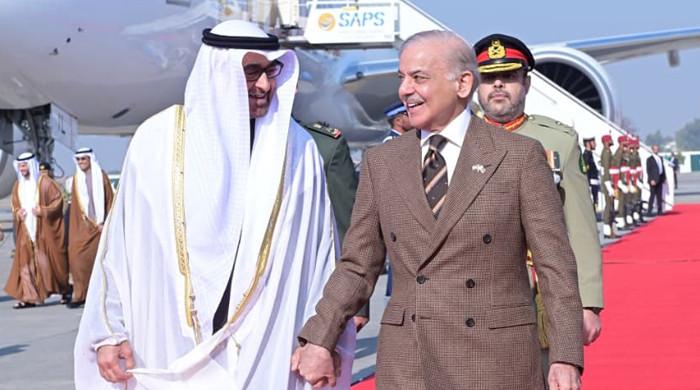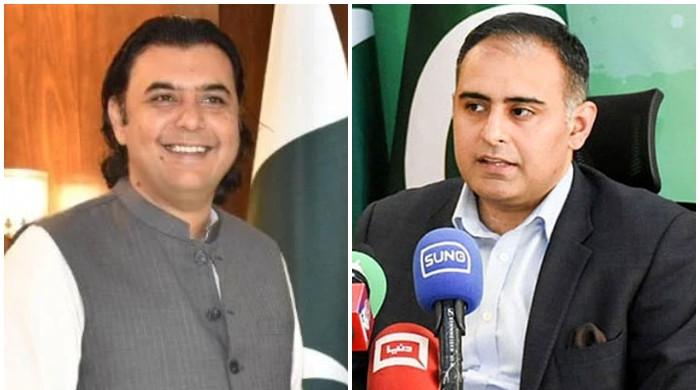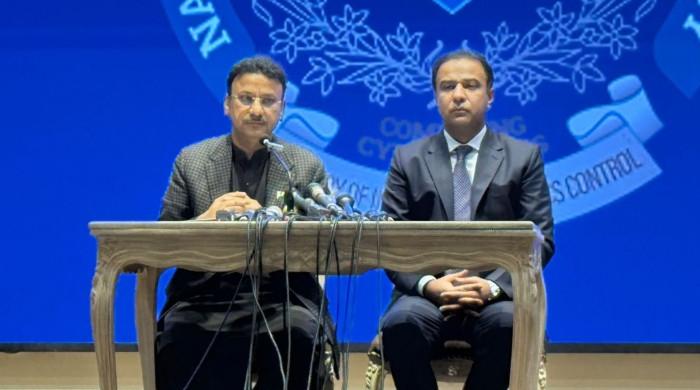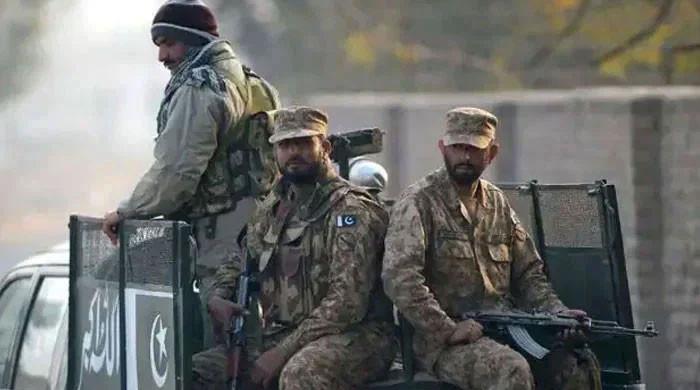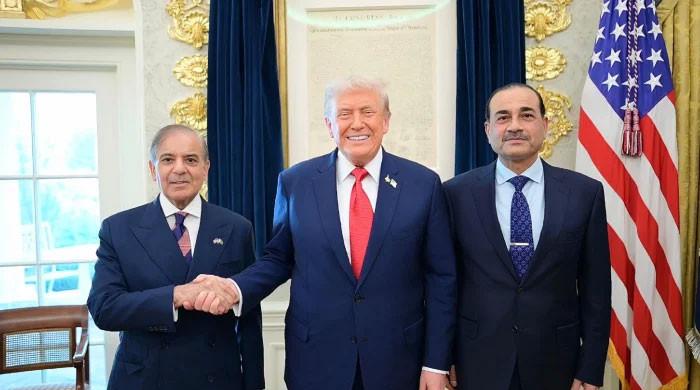Malala urges Pakistan to welcome Afghan refugees, provide children education
"These people have nothing to do with the war, so we must support them," says education activist
September 16, 2021
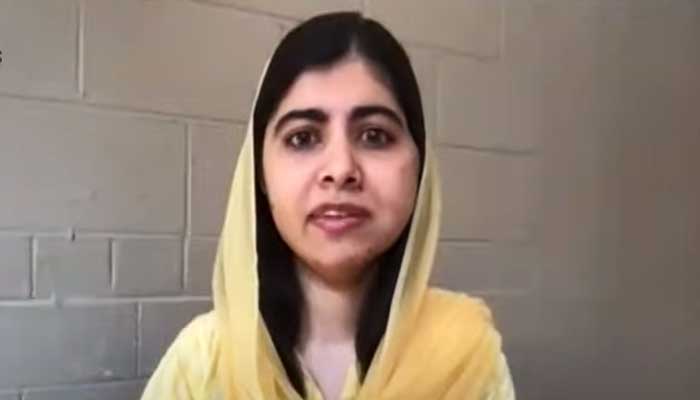
- Malala Yousufzai urges Pakistani government to not turn its back on Afghan refugees.
- "These people have nothing to do with the war, so we must support them," says education activist.
- Says failed nations are those that fail their women; Taliban must ensure rights are provided to women for country to succeed.
Nobel prize laureate and education activist Malala Yousufzai on Thursday called upon the Pakistani government to welcome and facilitate Afghan refugees as it has been for many years, and provide refugee children an education.
Her plea came during a conversation with Geo News on programme "Aaj Shahzeb Khanzada Kay Sath", where she spoke about how it is important to remember amid all the turmoil in Afghanistan that getting people to safety is "a matter of humanity and cannot be ignored".
"These people have nothing to do with the war, so we must support them," she urged.
Malala said it is important to remember that the common man is the one who is tortured the most and is the real victim in such conflicts.
"These are those people who lose their homes, their lives or their loved ones. It is important we think of these people, especially children, a lot of whom have been born during war. They must not be able to understand why this is happening, why foreign wars are being fought on their land and why their own people are failing them in this fight for peace," she said.
The activist said that accountability must be done for what unfolded in Afghanistan over the past several decades, "but right now we must focus on an urgent solution, to get people to safety in US, Europe and UK, as well as regional countries".
She paused to note and appreciate all the efforts made by Pakistan and insisted that these must continue.
"Every country has its own political interests but the people suffer the most," she reiterated.
She spoke of how food accessibility is of utmost concern in Afghanistan, how people are unable to access money in their banks, a lot of people have lost their jobs, and so, "right now humanitarian aid is important".
"Neighbouring countries must open their borders and provide such people shelter.
"Children who are not feeling safe, they must be saved and must be provided education," she stressed.
Malala's remarks come amid repeated remarks by the government that it cannot bear the burden of Afghan refugees in addition to the close to four million Pakistan already hosts.
Foreign Minister Shah Mahmood Qureshi a day earlier rejected the notion of Pakistan building refugee camps or resettlement processing facilities for the people coming from Afghanistan.
Instead, he said, Pakistan would continue to facilitate the departure of those with valid documents who wished to exit Afghanistan via Pakistan — drawing the line at allowing an influx of refugees.
'Difficult to say whether we should be positive about the future'
Malala said that when she spoke to education activists in Afghanistan last month, they expressed the hope that the Taliban will do things differently, given the positive narrative and soft image they have moved to push in recent weeks about education and women's rights.
She said that if one looks at the reality, several reports have surfaced that women are not being allowed to leave their homes or work.
"I myself spoke to a journalist who told me that whenever she would leave the house to go to work, she would be sent back," Malala said.
She said that there is always this "excuse" presented that women will be allowed to go to work and school "when it is safe" for them.
The education activist noted that those among the Taliban leadership that had spent some time abroad have a more relaxed approach to women's rights, "but they too are keeping things vague".
"They have not said in clear terms whether women will be allowed to work [...] and they have said that they will not be made a part of the cabinet and won't be allowed to work in all fields."
"And they have said that everything will be in accordance with the Sharia. But they are not on the same page when it comes to what the Sharia says about education and work.
“So it is very difficult to say whether or not we should be positive about the future,” she said.
Malala said that although what sort of government comes in Afghanistan is a matter that no one from the outside can interfere in, "one can continued to raise their voice for human rights, which is a universal matter".
What the Taliban must do
When asked what the Taliban can do that can be deemed acceptable by her and other activists, she said that first off, since she is a advocate of democracy, it is important that any government anywhere is voted in by the people.
Aside from that, it is important that the cabinet include equal representation from all groups, including women and minorities, because in the parliament important, decisions are made and if the voice of such people is not present during legislation, then such laws that are in their favour, are not made, Malala said.
She said that research has shown that an inclusive government is instrumental in a country’s success. Citing a recent report by the Economist, she said that those nations that fail women, themselves fail.
“So if we want to ensure our country succeeds, it is very important that women succeed. Their rights, their education (are ensured). This is not just a matter related to women, it pertains to humanity and the entire nation," she said.
Should the Taliban be 'given time' to change?
On the emerging view that “time” must be given to the Taliban government to change their ways instead of a rapid change being demanded, Malala said: “There is always a debate on how liberalised the society should be allowed to become and how many and what rights should be given."
"It is important to clarify here that I myself speak of education rights and women’s rights but I am very proud of my Pashtun culture, our Islamic culture and our Pakistani culture," the Nobel prize laureate said.
She said when one speaks of women’s and education rights, it in no way means adopting the American or the European culture, and even within Islamic countries there is a variety of cultures.
"So you cannot say this is right and that is wrong."
"I hope, when it comes to Afghanistan and Pakistan, we will be able to define within our own cultures, what equal rights are. And it is possible to safeguard women’s rights within our own culture," she underscored.
"So there is no clash in this (in culture and rights)," she emphasised.




